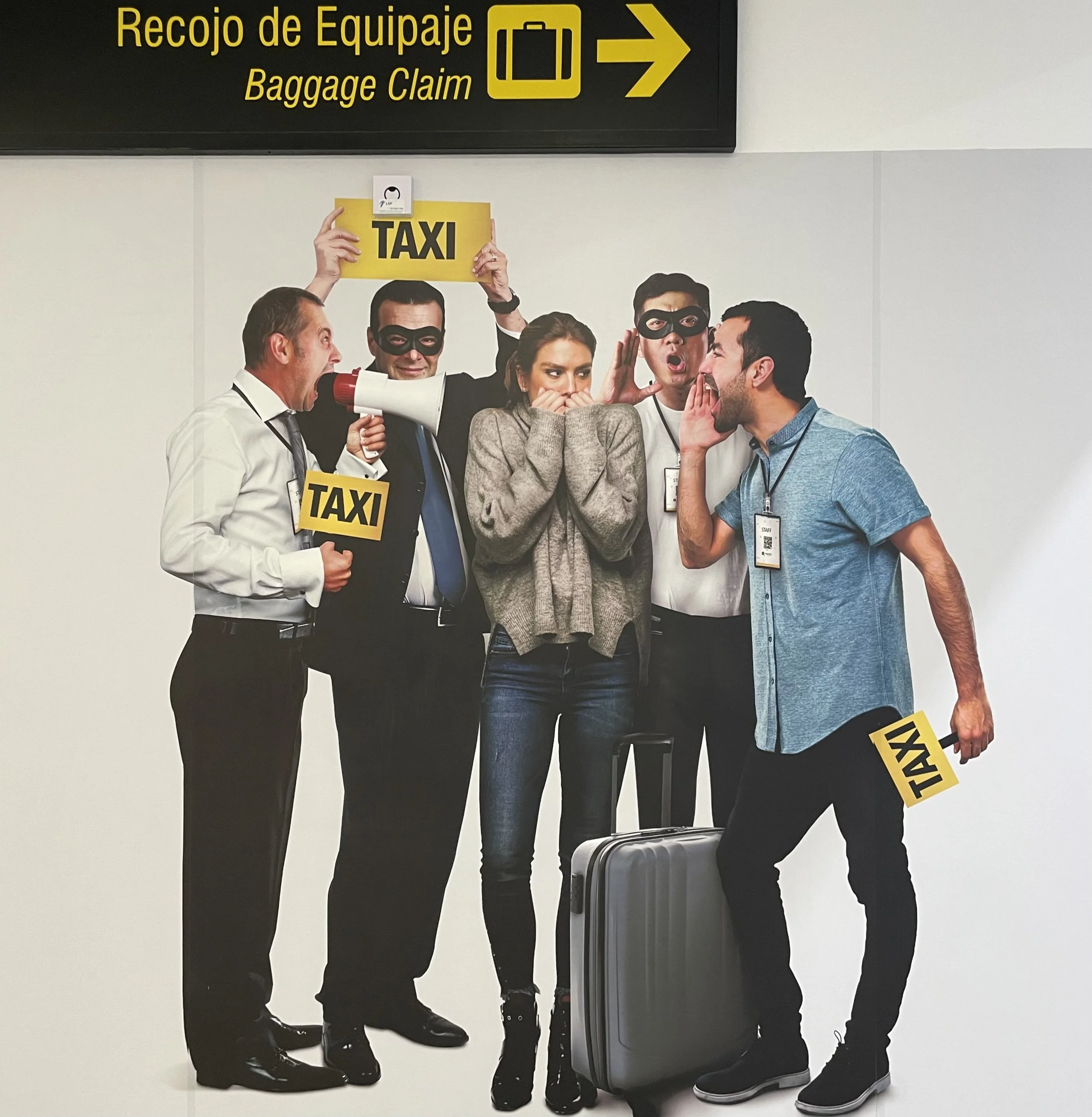Travel Tip 61
My top 3 tips for safe solo travel
I am truly perplexed by this Lima airport sign. What does "do not expose to any risk" mean? Should women traveling alone never take taxis in Lima? Or never hire a taxi driver who is loud?
My newsletter last week about what to do in case of emergency got me thinking about how to prevent emergencies.
This goes back to something my mom said to me as I was preparing to set off for a solo trip to Cambodia in 2005. She told me that she wasn’t worried about me traveling alone because she trusted me to know when I needed help, and she trusted that people would be kind and help me if I needed it.
That’s really the key to my top three solo travel safety tips: trust that people will be kind when you need help.
1. Know when you need help.
If it’s an emergency, hopefully you’ll know that you need help. It’s the times when it’s not an emergency that you have to think about. Many people hesitate to ask for help when they aren’t sure but think they might be lost or might not really understand what somebody is saying in a foreign language. You can keep going on your own, perhaps trying to fake it till you make it. You can see if the map or translator on your phone can help. Or you can ask a human being to help.
After a couple decades of solo travel, I tend to ask for help more now than I used to. In my 20s I felt like I needed to prove (usually to myself) that I could handle things on my own. Now, I use asking for help as an excuse to chat with locals and get to know people, which sometimes leads to new friends.
2. Know how to ask for help.
Be as specific as you can. If you’re dealing with a language and/or culture that’s unfamiliar, you need to be even more specific because it’s so easy for meaning to be lost in translation. Be direct and use simple vocabulary so the information you’re asking for doesn’t get lost.
Asking locals where to get good coffee led me to this artisan market in Paucartambo, where a local coffee grower was serving coffee and selling beans.
3. Know who to ask for help.
Though I’m a staunch believer in trusting the kindness of strangers, I’m still careful about who I ask for help. I consider how likely the person is to know the information that I need, and I give them a close look to see if they seem trustworthy to me. This is a moment when we all need to acknowledge implicit bias, especially about the country or culture where we’re traveling.
Other tourists are unlikely to know the answer to my question, even if they speak my language. I like asking shop owners for directions and which bus to take because they’re likely to know the neighborhood where they work well enough. I ask restaurant servers for recommendations on where else to eat, but only after I’ve eaten at their place. Sometimes other tourists have good recommendations for things to do and places to go, but often I find locals are the ones who can tell me about places and activities that aren’t easily found online.
Podcast
Rather than a blog and article, today I have a podcast for you. I recorded this interview with Kim Anderson on the Design Her Travel podcast. We talked about my tips for learning languages and why being afraid of something might be the reason to do it. Click on the black bar above to listen to our conversation.
Tune in September 18th!
This week I met Kim who created the Roaming Realities series. She’ll interview me on Instagram Live on September 18th so be sure to follow her now @proseandpassports and tune in on the 18th at 1pm EST (noon in Peru).
What do you think?
No, really, I don’t get this sign. What are people arriving at the Lima airport supposed to learn from this? Be afraid of loud taxi drivers? Leave me a comment below!





